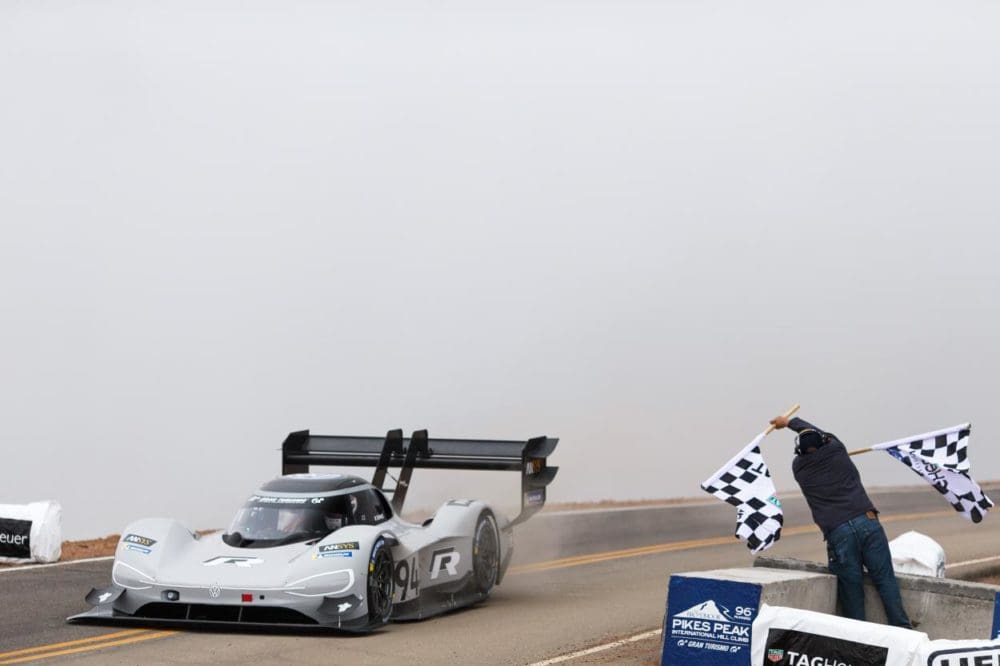
 Volkswagen and the I.D. R Pikes Peak have made history at the Pikes Peak International Hill Climb. Driving the 500-kW (592 bhp) I.D. R Pikes Peak, Romain Dumas (F) defeated a field including cars with conventional drivetrain technology. In doing so, he not only broke the previous record for electric vehicles, but also bettered Sébastien Loeb’s (F) all-time record from 2013 – by a full 16 seconds. Dumas’ new record of 7m 57.148s minutes is now top of the list of Pikes Peak champions, which includes such acclaimed drivers as Loeb, Walter Röhrl (D), Michèle Mouton (F), Stig Blomqvist (S), Nobuhiro Tajima (J) and also Rod Millen and his son Rhys (both NZ).
Volkswagen and the I.D. R Pikes Peak have made history at the Pikes Peak International Hill Climb. Driving the 500-kW (592 bhp) I.D. R Pikes Peak, Romain Dumas (F) defeated a field including cars with conventional drivetrain technology. In doing so, he not only broke the previous record for electric vehicles, but also bettered Sébastien Loeb’s (F) all-time record from 2013 – by a full 16 seconds. Dumas’ new record of 7m 57.148s minutes is now top of the list of Pikes Peak champions, which includes such acclaimed drivers as Loeb, Walter Röhrl (D), Michèle Mouton (F), Stig Blomqvist (S), Nobuhiro Tajima (J) and also Rod Millen and his son Rhys (both NZ).
“The I.D. R Pikes Peak is the sporty forerunner of Volkswagen’s I.D. family. Today, we saw what this technology is capable of,” said Dr. Frank Welsch, Member of the Board of Management of the Volkswagen Passenger Cars brand with responsibility for “Technical Development”. “Every Volkswagen employee can be extremely proud of today’s result. I congratulate the team from the bottom of my heart. With a combination of outstanding engineering skills, passion and commitment, the team has managed to create a fantastic racing car in just eight months. The Volkswagen I.D. R Pikes Peak has now set the fastest time in the history of this hill climb, which spans more than 100 years – that speaks volumes for electric mobility.”
Volkswagen also struck out in a new direction when it came to charging technology – the goal being to charge the car as quickly as possible with minimum environmental impact. The time was defined by the regulations: In case of the race being suspended, it must be possible to completely charge the car in under 20 minutes. The electricity required was provided by generators at the foot of Pikes Peak. Glycerol, which in chemical terms is a sugar alcohol, was selected as the fuel. A by-product of the manufacture of biodiesel, for example, Glycerol combusts with virtually no harmful exhaust fumes or residues. Glycerol itself is non-toxic and is even permitted as an additive in the food and cosmetics industries.
© Motorworld Media 2023
Registered Office: 4 Capricorn Centre, Cranes Farm Road, Basildon, Essex. SS14 3JJ
Company Number: 8818356
Website designed by Steve Dawson